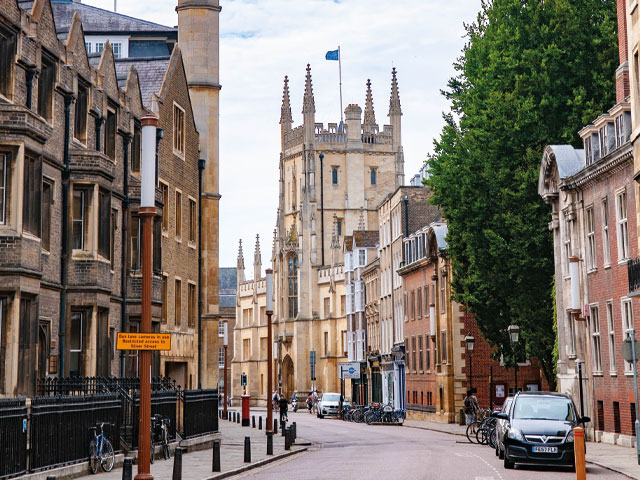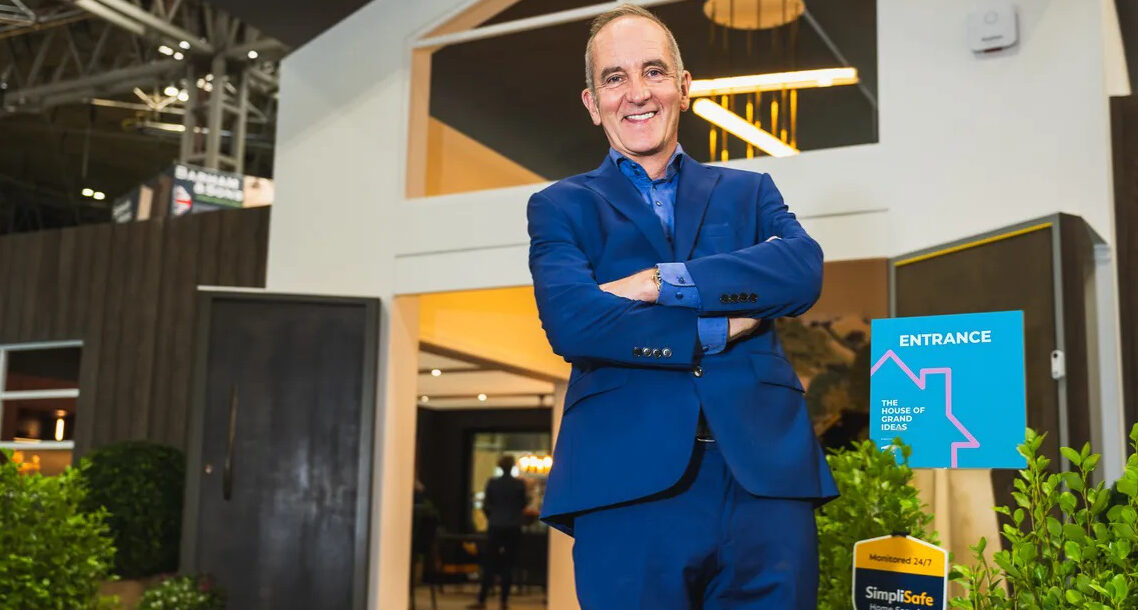The Government announces plans for more homes in England’s cities
Secretary of State for Levelling Up, Housing and Communities Michael Gove announced on the 24 of June 2023 that the government is to relax planning rules in England in a bid to increase the number of homes built in cities across the country to combat the UK’s housing crisis.
‘As my colleague Neil O’Brien argued in his landmark study for the think tank Onward on housing – Green, Pleasant and Affordable – cities are where the demand for housing is greatest. It is better for the environment, the economy, for productivity and well-being if we use all of the levers that we have to promote urban regeneration – rather than swallowing up virgin land,’ says Gove.
The initiative comes as prime minister Rishi Sunak insists the government will meet its commitment to building a million homes before the next election, expected in 2024.
Mr Sunak said the government would not be ‘concreting over the countryside,’ adding ‘Our plan is to build the right homes where there is the most need and where there is local support, in the heart of Britain’s great cities.’
A change to planning laws pave the way for more home extensions and the conversions of retail outlets into houses. New flexibilities will be introduced to allow shops and other commercial premises to be turned into living spaces, with Gove insisting that Britain must ‘make better use of the buildings we already have’.

Photo: Dyana Wing So/Unsplash
In order to speed up larger projects, the government will establish what it calls a ‘super squad’ of planners to unblock certain projects with a development in Cambridge being the teams first task.
It will also consider options for an appropriate delivery mechanism that will be needed to lead the long-term work on planning, land acquisition and engagement with developers, starting in this Parliament but running through the next few years as development takes form.
These ambitious plans for Cambridge include a vision for a new quarter of well-designed, sustainable and beautiful neighbourhoods for people to live in, work and study.
Gove announced the regeneration of a further three English cities, committing to transformational change in Cambridge, central London, and central Leeds.
A ‘Docklands 2.0’ proposal in east London would create up to 65,000 homes across multiple sites of significant scale including at Thamesmead, Beckton and Silvertown. Beautiful, well-connected homes and newly landscaped parkland will be incorporated into the plans.
London will see the benefits of this government’s decision to allow the Affordable Homes Programme to be directed towards regeneration for the first time – with up to £1 billion available in London alone – as part of a transformative reform.
Gove outlined plans to continue working closely with local partners in Barrow, to help make Barrow a new powerhouse of the North.
£800 million from the £1.5 billion Brownfield, Infrastructure and Land fund will be used to unlock up to 56,000 new homes across England, transforming disused sites and creating vibrant communities for people to live and work, while also protecting green spaces.
A report by the Commons housing committee early in July found that while ministers are on track to deliver its one million homes target, they are not expected to meet their other commitment to deliver 300,000 new homes every year by the mid-2020s.
In a wide-ranging speech anchoring on policy, Gove gave updates on a range of other promises, including his promise to end the leasehold system in England.
The housing secretary said he would legislate to improve rights for leaseholders in several ways, including limiting rises in ground rents, giving leaseholders more power to take control of the management of their properties, and reducing legal and insurance costs for leaseholders. But he confirmed that leasehold would remain a legal form of home ownership.
A focus was on safety too after the Grenfall Tower fire. ‘And today we are taking further steps by opening our new Cladding Safety Scheme – and also providing much-desired clarity to builders that 18m will be the threshold that we will introduce for new buildings requiring second staircases,’ Gove said.
Gove highlighted how the government would push developers towards urban areas. ‘In addition the new Infrastructure Levy which we are legislating for in the Levelling Up and Regeneration Bill will further incentivise that brownfield development. Developers aiming to build on greenfield sites will have to pay more – to provide for the new affordable housing and the infrastructure necessary in areas where there just aren’t the roads, GP surgeries, the schools and shops already in place,’ he said.

Photo: Cajeo Zhang/Unsplash
But some are not enthusiastic about the proposed plans.
The Local Government Association has warned that offices, shops, and barns are not always suitable for housing, and could result in the creation of poor-quality homes.
Polly Neate, Chief Executive of Shelter said: ‘It’s positive to see that housing is back on the agenda and that the Secretary of State is not afraid to build. But Michael Gove’s speech on housing was a real mixed bag. We need proper investment to build much-needed genuinely affordable homes, not more piecemeal reform. Converting takeaways and shops into homes and restricting building to city centres won’t help. It could risk creating poor quality, unsafe homes that cause more harm than good.’
Labour has different plans for change. They promise should the party win the election that is likely to take place next year that they would make it easier for councils to build on the green belt.
But ministers’ lack of powers to force through schemes in the face of local opposition were shown by resistance from Anthony Browne, the Conservative MP for South Cambridgeshire.
Before Gove was due to speak, Browne tweeted: ‘I will do everything I can to stop the government’s nonsense plans to impose mass housebuilding on Cambridge, where all major developments are now blocked by the Environment Agency because we have quite literally run out of water. Our streams, rivers and ponds already run dry.’
When asked about Browne’s comments, Gove said he believed he could convince the Tory backbencher of the scheme’s benefits. But he refused to say he would force through the plans even if local policymakers oppose them.
‘It takes some serious brass neck for the Tories to make yet more promises when the housing crisis has gone from bad to worse on their watch.’ says Lisa Nandy, Labour’s shadow housing secretary.

Photo: Daniel Soh/Unsplash









